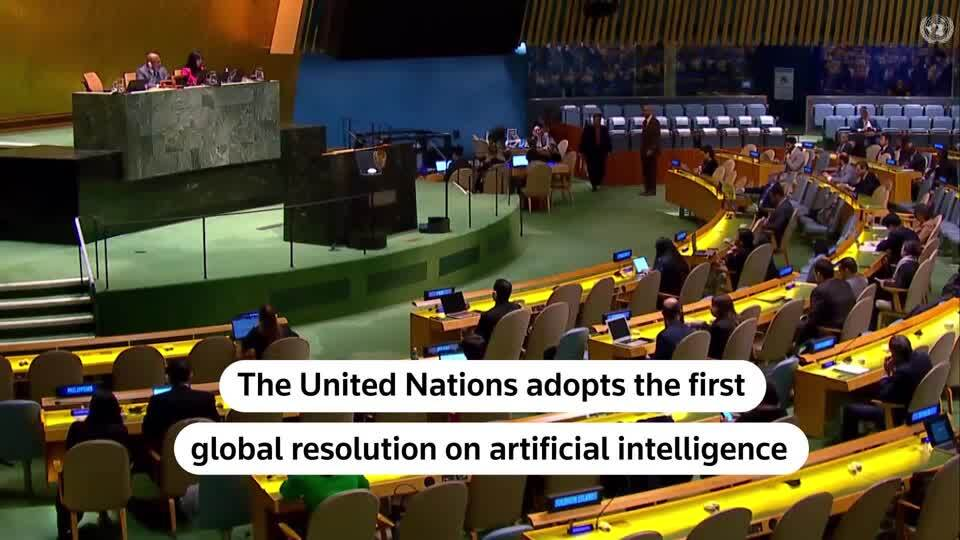UN ADOPTS FIRST GLOBAL RESOLUTION ON ARTIFICIAL INTELLIGENCE
- On March 24, 2024, the United Nations General Assembly created history by adopting the first global resolution on Artificial Intelligence (AI).
- The resolution, sponsored by the United States and co-sponsored by 123 countries including Russia, China, and Cuba.
|
Important Facts:
|

Background:
- Rapid progress in AI technology has given rise to concerns about its potential risks and benefits, including its impact on human rights, privacy and democratic processes.
- The resolution marks an important milestone in a series of initiatives taken by governments around the world to shape the development of AI and reduce potential harms.
Key Objectives: The resolution seeks to address several key objectives, including:
- Bridging the digital divide between developed and developing countries
- Ensuring that developing countries have the technology and capabilities to benefit from AI
- Protecting human rights and protecting personal data
- Monitoring AI for risks and potential harms
- Strengthening Privacy Policies
- global cooperation
The United States worked with more than 120 countries at the United Nations, including Russia, China and Cuba, to negotiate the text of the resolution over the past few months.
Impact on Developing Countries:
The resolution places emphasis on bridging the digital divide and ensuring that developing countries are not left behind in the AI revolution. It aims to provide these countries with the necessary technology and capabilities to leverage AI's potential for solving pressing challenges, such as detecting diseases, predicting natural disasters, assisting farmers, and preparing the workforce for the future.
Conclusion:
The UN resolution on Artificial Intelligence represents an important step towards shaping the future of AI and ensuring its responsible development and use. This highlights the importance of international cooperation, collaboration and inclusivity in addressing complex issues related to AI. By working together, nations can harness the transformative power of AI while minimizing its potential risks, ultimately building a more equitable and sustainable world for all.
